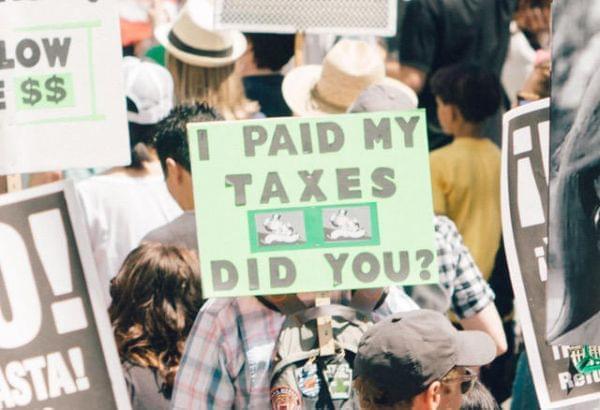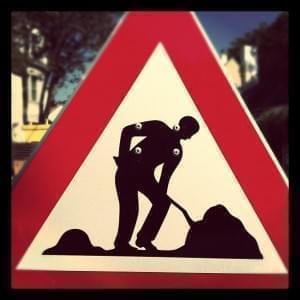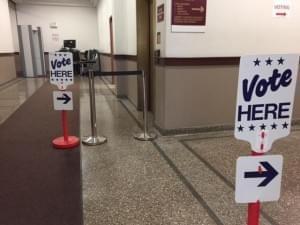Illinois Issues: We Have Met The Enemy And He Is Us

A tax protest in Los Angeles in April. Molly Adams/Flickr
As the governor and legislature have grappled in a historic death match over their views of how to sync our policy desires and our resources, many wonder if there is something especially daunting about budgeting in the Prairie State.
One major problem is democracy. The logic of representative democracy is that policymakers want election or re-election and they maximize their chances by reflecting their constituents’ wishes. In this era of instant communication and frequent opinion polling, our leaders know what we want and we know what they are doing. Some even argue that this generates hyper-representation, precluding policymakers’ careful thought and independent analysis.
So, what are Illinoisans’ views on state government taxing and spending? The Paul Simon Public Policy Institute at Southern Illinois University conducted a poll in March 2017 that gives us considerable insight into this and the budgetary puzzle that results.
“Don’t tax me; don’t tax thee”
The punch line for taxes is the most disliked are those that affect the most people. Clear majorities oppose personal income, sales or gasoline tax increases. These are the taxes that people pay regularly and conspicuously — we know and dislike these taxes. Combined, they account for over two-thirds of the state’s revenue. The lack of support for taxing retirement income doesn’t seem to fit here, since most people are not retired. But perhaps many of us have elderly relatives or friends who are living frugally on fixed incomes.
On the other hand, Illinoisans favor revenue increases in the form of expanded gambling and taxing rich people. In addition to the “millionaire tax,” the progressive income tax hits the wealthy hardest, as would a tax on retirement income over $100,000. Taxing more services may be supported because it was linked in the question to reducing the sales tax rate.
These results reflect that old adage about taxpayers’ desires: “Don’t tax me; don’t tax thee; tax that fella behind the tree.” In other words, we are happy to increase taxes — as long as someone else pays them.
Illinoisans are not crazy about raising general taxes to deal with our fiscal crisis. Perhaps we could balance the budget from the other direction. What do Illinoisans think about spending cuts?
The Simon poll is quite revealing here, too. When asked whether revenue increases, spending cuts or both should be used to address the state’s fiscal crisis, only 11 percent of Illinoisans argued for revenue increases alone. Oh yes, we do hate “taxes.” On the other hand, fully 45 percent argued for spending cuts alone. In other words, four times as many Illinoisans favor spending cuts than favor tax increases. Another 34 percent believe that both approaches should be used.
So, a strong plurality of Illinoisans favors cutting spending over raising taxes. That’s good guidance for re-election-seeking policymakers, but better would be some guidance on which programs should be cut. Here’s where we run into problems.
What do Illinoisans want to cut? Apparently, nothing. In none of the categories the Simon poll asked about is there even a plurality supporting less spending. In fact, we want to spend even more money than we do on education, disability programs, poverty relief, public safety and natural resources. Combined, these programs account for over 80 percent of state spending.
Thus, Illinoisans want the state to spend more and tax less — even as the state already has an unbalanced budget. From a representational perspective, policymakers are doing a terrific job. For years, they have been giving us more services than we have paid for. Of course, from an accounting perspective, this is unsustainable and ultimately, disastrous.
Illogical combination
Why are Illinoisans so self-contradictory in their budgetary thinking? Perhaps, it’s a lack of trust that our leaders will do the right thing. With two recent governors incarcerated for corruption, the massive public pension deficit, the unprecedented budget standoff and a governor who regularly denigrates the state’s political system, are Illinoisans especially suspicious of their state government?
Perhaps. But in fact, hating taxes, supporting generic cuts and opposing specific cuts is as American as the SUV. Scholars have found this illogical combination of attitudes time and again. For example, the 2006 General Social Survey about federal government spending shows that Americans generally have the same “tax that fella behind the tree” sentiment as Illinoisans.
On the generic question, fully 63 percent favor less spending, while only 14 percent want more. But as with the Simon poll, when asked about specific policy areas, respondents didn’t favor cutting any of them. In four of the seven categories, most respondents even favored more spending.
Most people think that the rich should pay more than the poor, according to the 2006 survey. Likewise, most respondents thought that taxes on high-income people were too low, while taxes on middle- or low-income Americans were too high. Because most Americans consider themselves middle class regardless of income, taxing the rich is another way to get someone else to pay for government services.
Free rider problem
Illinoisans are not unique in wanting government to provide more services while taxing others to do so. Sure, everyone wants something for nothing. We would never expect this in a private business transaction, so why do we expect this of government? To answer this, consider the “free rider” problem that government is meant to solve.
Government is the way people decide collectively which public goods they want and how to tax themselves to pay for them. In general, the government provides public goods that simply would or could not be efficiently produced by the private sector.
Private goods, like a hot dog or a bicycle, are those that we choose to buy in the marketplace and that we have personal control over. These goods advantage only the buyer, and the buyer chooses how much of them he or she will purchase. On the other hand, public goods are those things that everyone can benefit from — like roads, schools and police protection. Most importantly, public goods are those that we all must pitch in to fund.

Will Illinois voters stop digging?
This leads us to the free rider. No one can be excluded from enjoying public goods, even those who don’t pay for them. If you don’t pay your taxes, the police will still respond to your 911 call and your kids can still go to school. Thus, benefiting from a public good without paying is like being a stowaway on a ship: the ride is free — but at the expense of those who paid their fare.
The logic of the free rider problem suggests that it is actually irrational to pay for public goods voluntarily. If I have a kid in school, I’ll pay for that since it is a private good to me, but I should refuse to pay for the school once my kids are grown. If I want police protection for my place of business, I’ll pay the cops directly. If not, I won’t. And with too many free riders, the system collapses; no public goods, such as schools and police, are provided. This is not as crazy as it sounds. Less than 150 years ago, private schools and private security were the norm rather than the exception in this country.
The central problem here is that while public goods provide considerable public benefits, we can’t exclude from those benefits those who don’t pay for them, like we can for private goods.
And who wouldn’t want to be a free rider? If I don’t pay my taxes, I know that the schools won’t close and the police won’t stop patrolling the streets. So, I prefer not to pay my taxes. Since most everyone thinks this, the government must levy taxes under the force of law, giving us no good option but to pony up. But this does not preclude: getting someone else, such as millionaires, to pay more of the tax burden; and, or simply complaining about taxes — a favorite pastime of members of all modern societies.
A similar phenomenon occurs with spending. “Government spending” connotes something too general to affect us individually, so we want less of it. But mention more specific spending, and we have a better understanding of how we might benefit from it. Indeed, if we surveyed people about cutting specific programs that they benefit from directly, for example asking parents about cutting public education spending, we would find even greater opposition than we see in the Simon and national polls.
As the comic strip character Pogo once said, “We have met the enemy, and he is us.”
How do we solve this dilemma?

Politicians don't make it easy for voters by feeding the perception they can have something for nothing.
How do we ensure that the public goods we want are adequately supported even if we don’t want to pay for them? This is the job of our public leaders. Policymakers must listen to voters’ needs and desires, work with other leaders from around the state, negotiate and compromise to decide on the possible solutions, and then sell their decisions to the public. Constituents can then hold them accountable in the next election.
Policymakers have an incentive and a duty to look at the larger picture. They need to help us understand it, too. The more we feel a sense of commonality with others in the state, the more we will trust our leaders and even be willing to fund programs from which we don’t directly benefit.
On the other hand, when politicians denigrate public goods, exploit regional rivalries and otherwise feed into the perception that it is possible to have lower taxes and more services, they make the resolution of this dilemma even more difficult.
There is plenty of room in political debate for broad questions of government priorities, as well as for narrow questions about how well government is accomplishing those priorities. But pandering to voters’ underlying misperceptions is what got Illinois into its current budgetary predicament. Straight talk from our leaders about why the state does what it does and how that benefits us all would be a good place to start fixing it.
Illinois Issues is in-depth reporting and analysis that takes you beyond the headlines to provide a deeper understanding of our state. Illinois Issuesis produced by NPR Illinois in Springfield.
Links
- Illinois Issues: A Master Of Compromise Exits
- Illinois Issues: The Man With The Education Reform Mission
- Illinois Issues: No Money For Shoes
- Illinois Issues: Flat Vs. Graduated Income Tax
- Illinois Issues: Cairo Faces Public Housing Crisis
- Illinois Issues: ERA — Yesterday And Today
- Illinois Issues: The Experts’ Take On The Budget
- Illinois Issues: The Prairie State’s Nuclear Waste Conundrum
- Illinois Issues: The Battle Over Transparency And Privacy In The Digital Age
- Illinois Issues: Local Icon Shifts To ‘The Most Dangerous Woman In America’

